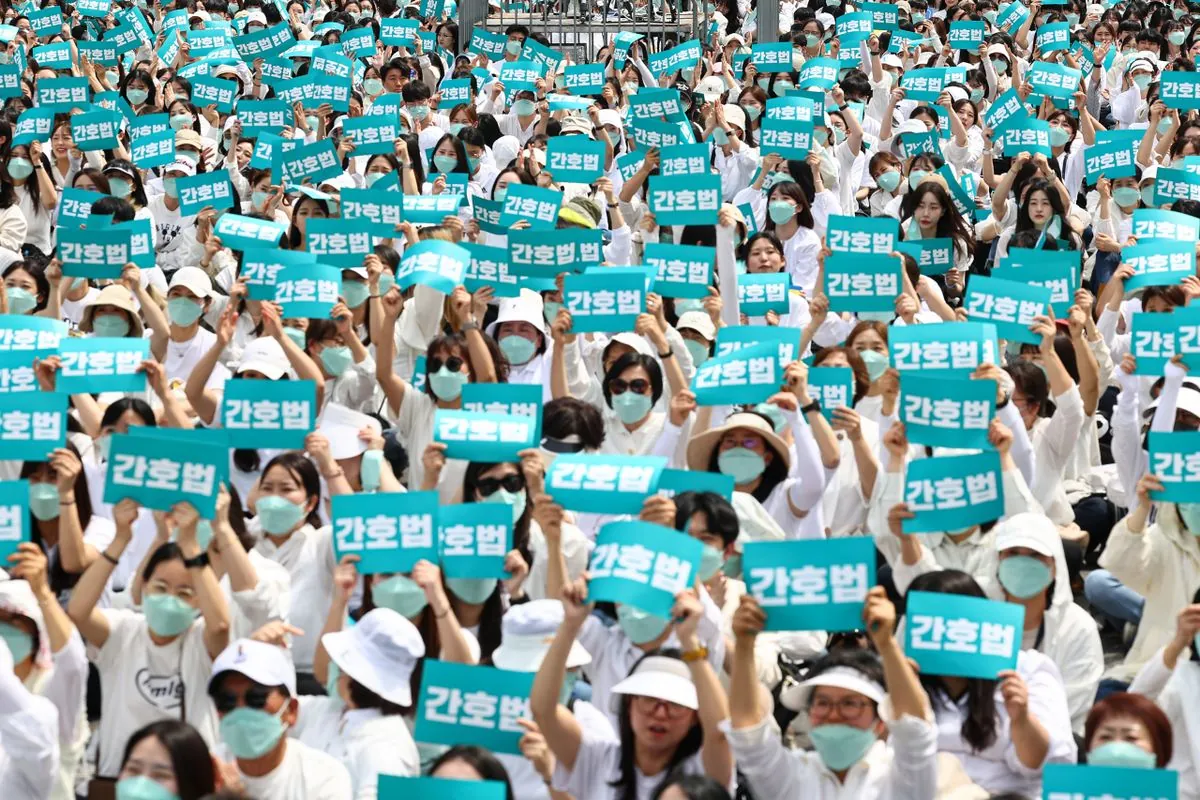South Korea Empowers Nurses Amid Ongoing Doctors' Strike
South Korean parliament passes bill allowing nurses to perform certain medical procedures, addressing healthcare challenges amid doctors' strike and COVID-19 surge. The move sparks debate between nursing and medical associations.

In a significant development for South Korea's healthcare system, the nation's parliament has approved legislation permitting nurses to carry out specific medical procedures typically performed by physicians. This decision comes as a response to the ongoing doctors' strike and increasing healthcare demands.
The bill, passed on August 28, 2024, marks a crucial milestone in the 19-year effort by nursing organizations to gain legal recognition for their expanded roles. This legislative change aims to address the growing healthcare challenges faced by South Korea, which has one of the highest life expectancies globally but also one of the lowest physician-to-population ratios among OECD countries.
The Korean Nurses Association expressed satisfaction with the new law, viewing it as a step towards establishing a comprehensive nursing care system and achieving universal health coverage. This development is particularly significant given South Korea's aging population and the increasing demand for healthcare services.

However, the Korean Medical Association has voiced strong opposition to the bill. They argue that the legislation could lead to confusion regarding the scope of medical practices and potentially compromise patient care. This disagreement highlights the ongoing tension between different healthcare professional groups in the country.
The recent legislation is part of a broader context of healthcare challenges in South Korea. The country has been grappling with a shortage of healthcare workers, especially in rural areas, despite having one of the highest numbers of hospital beds per capita among developed nations. Additionally, South Korea's healthcare system, known for its advanced technology and efficiency, has been under strain due to the COVID-19 pandemic and a prolonged doctors' strike that began in February 2024.
"This bill will help boost support for medical professionals, and I plead for doctors to seek a resolution to their strike."
South Korea's healthcare landscape has been evolving rapidly in recent years. The country has been a leader in telemedicine and digital health innovations, and its pharmaceutical industry has seen significant growth. Moreover, South Korea has been investing heavily in biotechnology and medical research, positioning itself at the forefront of medical advancements.
The passage of this bill represents a compromise between competing interests in the healthcare sector. It reflects the government's efforts to address immediate healthcare needs while navigating the complex relationships between different medical professions. As South Korea continues to face healthcare challenges, including an aging population and the ongoing pandemic, the impact of this legislation on the quality and accessibility of healthcare services will be closely watched by both supporters and critics alike.


































